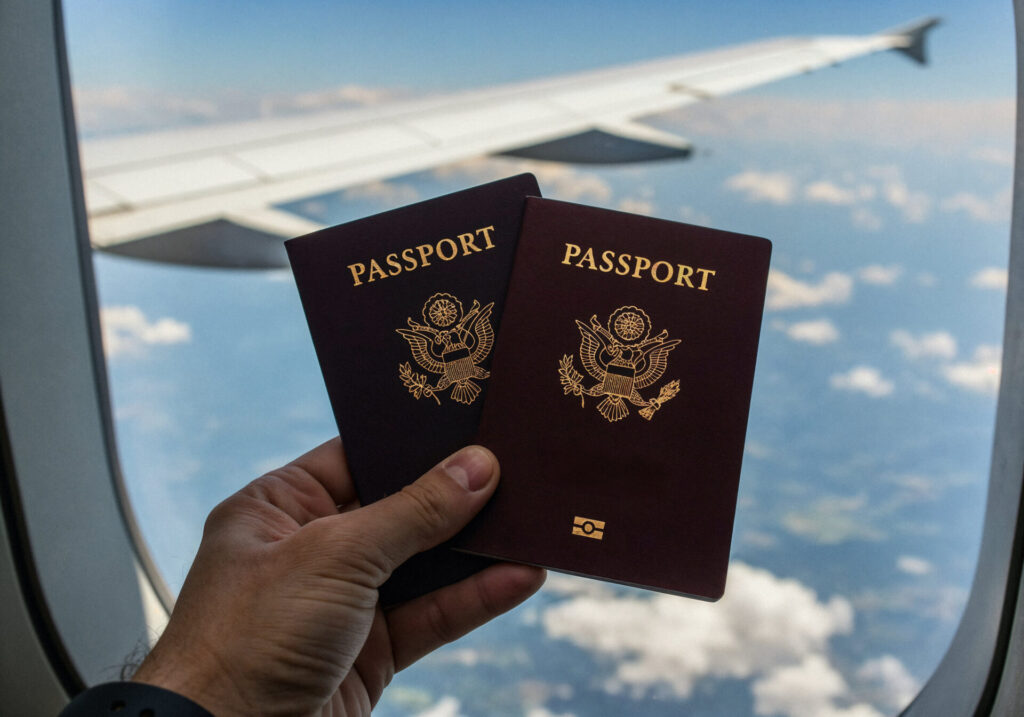Living or planning to live in Portugal as a remote worker, freelancer, or founder? New immigration and nationality laws are changing how you can get residency, citizenship, and bring your family. These updates are significant and can affect your long term plans. Understanding them now is crucial to avoid unexpected problems and ensure your legal status in Portugal.
How long do I need to live in Portugal to get citizenship now?
The Portuguese government has changed the minimum residency period required to apply for Portuguese nationality. Previously, it was generally five years for most applicants. Now, this period depends on your country of origin.
If you are a citizen of a Community of Portuguese Language Countries (CPLP) nation, the minimum residency period has increased from five years to seven years. For citizens from all other countries, this period has been extended to ten years.
It is important to note that this residency period begins counting from the date you obtain your first legal residence permit, not from the moment you express your intention to live in Portugal. This clarity is important for anyone tracking their eligibility.
- CPLP Citizens: 7 years of legal residency.
- Non-CPLP Citizens: 10 years of legal residency.
This change aims to ensure a stronger, more established connection to Portugal before citizenship is granted.
What new tests do I need to pass for Portuguese citizenship?
Beyond the increased residency time, new requirements for naturalization include demonstrating knowledge of the Portuguese language and culture. You will also need to show an understanding of the fundamental rights and duties that come with Portuguese nationality.
This means that simply living in Portugal for the required period will no longer be enough. Applicants will likely need to pass specific exams to prove their proficiency in Portuguese and their understanding of Portuguese society and its democratic principles. Along with this, you will need to make a formal declaration of adherence to the principles of the democratic rule of law.
These new requirements are designed to ensure that new citizens are well integrated and understand the civic responsibilities of being Portuguese.
How do the new laws affect citizenship for children born in Portugal?
The rules for obtaining Portuguese citizenship for descendants have also changed. Previously, there were situations where citizenship could be granted automatically to children born in Portugal. Now, for a child to obtain Portuguese nationality, their parents must have been legal residents in Portugal for a minimum of three years.
Furthermore, citizenship will no longer be automatically assigned to descendants. Instead, the parents or the descendant themselves (if of age) must formally express their will to acquire Portuguese nationality. This adds an active step to the process, ensuring a conscious decision to become a Portuguese citizen.
Can I lose my Portuguese citizenship under the new laws?
Yes, the new legislation introduces provisions for the loss of Portuguese nationality, particularly for naturalized citizens. If a naturalized citizen is convicted of serious crimes that result in an effective prison sentence of five years or more, their nationality can be revoked.
This measure is intended as an accessory sanction, decided by a judge, for severe offenses such as crimes against the state or violent crimes like homicide or rape. The government states this is not an automatic or necessary effect of a criminal conviction but rather a judicial decision for specific, grave cases.
Navigating these new rules can be complex. Not sure how these changes affect your current or future plans in Portugal? You can check your setup for free with our Portugal Setup Checker. It gives you a risk score and clear next steps.
What are the new rules for family reunification in Portugal?
Bringing family members to Portugal under family reunification rules has become more restrictive. Under the new law, the primary immigrant must have been legally residing in Portugal for at least two years with a valid residence permit before they can apply for family reunification.
Additionally, the scope of who can be reunited has been narrowed. While the previous rules allowed for a broader range of family members, the new changes primarily focus on minor children. For spouses or partners, a separate legalization process may be required, rather than automatic inclusion under family reunification.
Applicants will also need to provide guarantees of adequate housing and sufficient means of subsistence, ensuring they will not rely on social benefits. The family will also be required to comply with integration measures, such as learning Portuguese and attending mandatory schooling.
These changes aim to manage the capacity of public services and ensure better societal integration for new arrivals.
How do the new CPLP visa rules affect citizens from Portuguese speaking countries?
A significant change impacts citizens from CPLP countries. Previously, it was possible for CPLP citizens to enter Portugal on a tourist visa or without a visa and then apply for a residence permit from within Portugal, often through a “manifestation of interest” process. This pathway is now being closed.
Under the new rules, CPLP citizens will need to obtain a specific consular visa before arriving in Portugal if they intend to apply for a residence permit. This means you can no longer arrive as a tourist and then switch your status to a resident. The government aims to prevent what they refer to as “manifestation of interest 2.0,” ensuring that all entries for residency purposes are pre approved and regulated.
This change emphasizes the need for proper planning and obtaining the correct visa type before your arrival in Portugal.
Are there still fast track options for highly qualified workers in Portugal?
Despite the overall tightening of immigration rules, the Portuguese government continues to prioritize attracting highly qualified talent. The “via verde” (green lane or fast track) protocol for hiring immigrants by Portuguese companies is being expanded.
While general job search visas (visas to come to Portugal without a prior contract or job promise) will now be limited to highly qualified functions, the government is working to streamline the entry of skilled professionals. This includes creating mechanisms inspired by the “via verde” for academics, researchers, and professors.
The goal is to redirect migration flows towards attracting more talent and qualified workers, transforming the national economy to rely more on knowledge and added value. If you are a highly skilled professional, there may still be specific pathways designed to facilitate your move to Portugal.
What is the new border control unit in Portugal?
The government has approved the creation of a new national unit for foreigners and borders within the Public Security Police (PSP). This unit, called the Unidade de Estrangeiros e Fronteiras (Foreigners and Borders Unit), will take over the functions previously handled by the Serviço de Estrangeiros e Fronteiras (SEF), which was dissolved.
This new unit will be responsible for border control at entry points, inspection throughout the national territory, and the execution of removal and return orders for those who do not comply with the rules. While this is more of an administrative restructuring, it signifies a renewed focus on border management and enforcement.
These changes can feel overwhelming. For personalized guidance on your specific situation or to address urgent legal or tax questions, you can book a Clarity Call (marcar) with a licensed Portuguese immigration or tax lawyer. Get expert advice fast.
FAQ
When do these new immigration laws take effect?
The changes generally apply to new applications submitted after June 19, 2025. However, it is always best to confirm the exact effective date for your specific situation.
Do these changes affect my existing residence permit?
The new rules are primarily for future applications. If you already have a valid residence permit, these changes should not directly affect its validity, but future renewals or applications for citizenship will fall under the new rules.
Is it still possible to move to Portugal as a remote worker?
Yes, it is still possible. However, careful planning and adherence to the new visa and residency requirements are more important than ever. Understanding the specific visa types and application processes is crucial.
Where can I find official information about these changes?
Official information is typically published by the Portuguese government through the Council of Ministers communiqués and the Ministry of Justice portal. Always refer to official sources or consult with legal professionals.
References:
Carvalho, R. (2025, June 23). Conselho de Ministros reunido para discutir mudanças na Lei da Nacionalidade. SIC Notícias.


